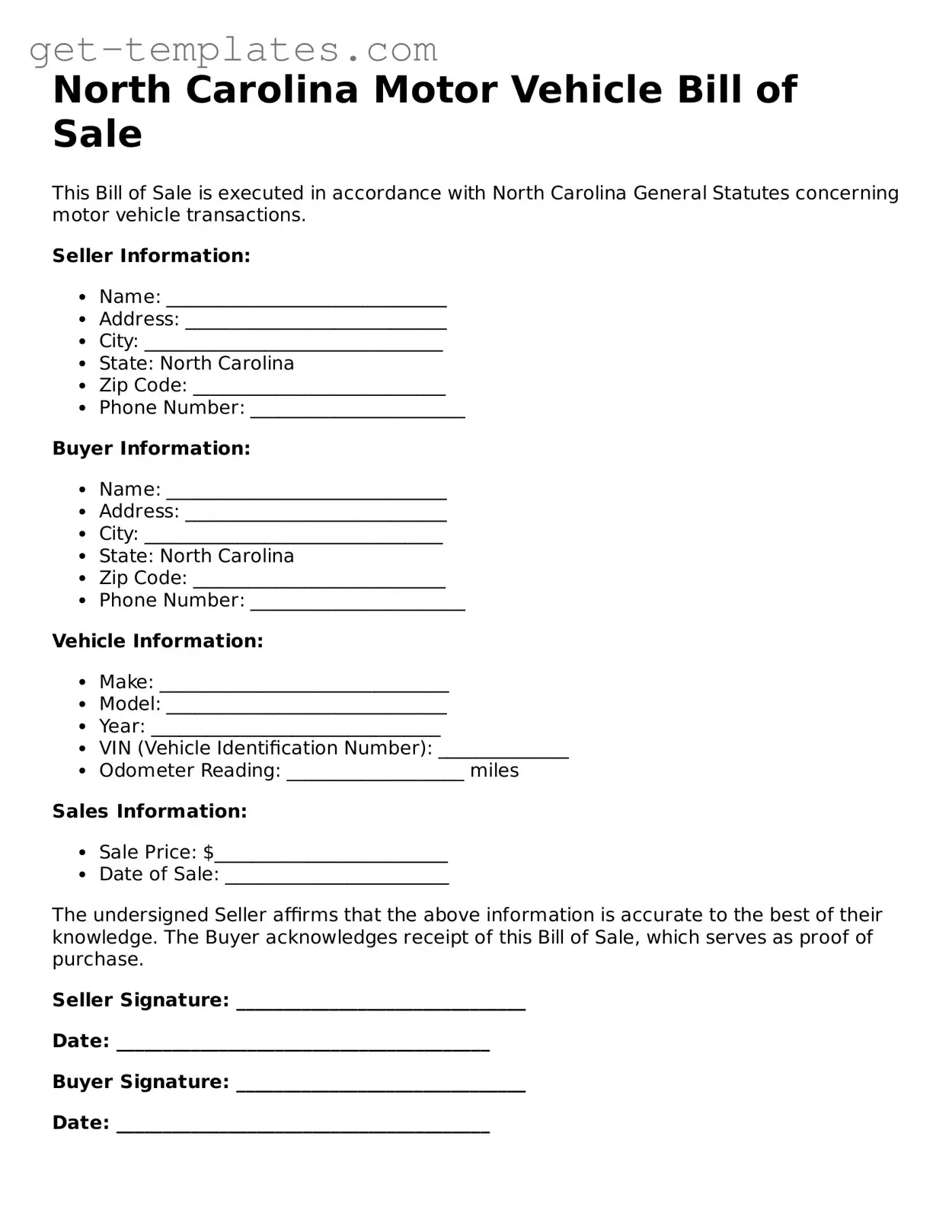What is a North Carolina Motor Vehicle Bill of Sale?
A Motor Vehicle Bill of Sale in North Carolina is a legal document that records the sale of a vehicle between a buyer and a seller. This form provides proof of the transaction and includes essential details about the vehicle, the buyer, and the seller. It is often required for registering the vehicle and transferring ownership.
The Bill of Sale typically includes the following information:
-
Full names and addresses of the buyer and seller
-
Vehicle identification number (VIN)
-
Make, model, and year of the vehicle
-
Odometer reading at the time of sale
-
Sale price of the vehicle
-
Date of the sale
This information helps ensure clarity and legality in the transaction.
Do I need a Bill of Sale for every vehicle sale?
Yes, it is advisable to have a Bill of Sale for every vehicle sale in North Carolina. This document serves as proof of the transaction and can protect both the buyer and seller in case of disputes. It is also necessary for the buyer to register the vehicle in their name.
Is the Bill of Sale required for registration?
Yes, when registering a vehicle in North Carolina, a Bill of Sale is often required. It helps the Department of Motor Vehicles (DMV) verify the transaction and ensure that the vehicle is legally owned by the buyer. Without it, the registration process may be delayed or denied.
Can I create my own Bill of Sale?
While you can create your own Bill of Sale, it is important to ensure that it includes all the necessary information and complies with North Carolina laws. Using a standard form can help avoid missing critical details and ensure that the document is legally valid.
What if the vehicle has a lien?
If the vehicle has a lien, it is crucial to disclose this information in the Bill of Sale. The seller should provide details about the lienholder and ensure that the lien is satisfied before the sale is finalized. This protects the buyer from any future claims on the vehicle.
How do I complete the Bill of Sale?
To complete the Bill of Sale, both the buyer and seller should fill out the required information clearly and accurately. After filling out the form, both parties should sign and date it. It is recommended to keep a copy for personal records.
You can obtain a North Carolina Motor Vehicle Bill of Sale form from various sources. The DMV website provides downloadable forms, or you can find templates online. Additionally, many office supply stores offer pre-printed forms.

